当前位置:网站首页>grpc系列-初探grpc 路由注册和转发实现
grpc系列-初探grpc 路由注册和转发实现
2022-08-09 10:51:00 【ase2014】
grpc
- grpc将按照系列来讲,本次博客,从大体来讲,主要包括路由注册、路由转发、unary和stream的差异点
- 后面主要会讲述优雅停机、binlog、channelz、HTTP2.0特性、intercepter、proto(包含编码、以及代码生成)
总结
- google实现的rpc框架,开发者定义proto文件,即接口文件,通过命令生成具体代码
- 路由通过method识别,前面一截是service name、后面一截是method name,通过.作为分隔
- unary是定义好整个请求流程,业务只需要执行自身的method即可
- stream是method里面自身去调用RecvMsg和SendMsg,自主性和灵活性高点
- 查看接口定义,搜索RegisterService即可,*.pb.go里面定义了service
struct介绍
type Server struct {
opts serverOptions // 支持通过option方式定制的参数
// 跟cv一起使用,是创建cv的入参
mu sync.Mutex // guards following
// 支持多个listener
lis map[net.Listener]bool
conns map[transport.ServerTransport]bool
// 确认是否开始serve,调用Serve函数,会设置该值为true
serve bool
drain bool // 连接是否耗尽,优雅停机的时候会将drain设置成true
// 用作优雅停机,当前
cv *sync.Cond // signaled when connections close for GracefulStop
// 定义service,注入到services里面
services map[string]*serviceInfo // service name -> service info
// 跟踪请求,用作打印,通过设置EnableTracing为true启动埋点
events trace.EventLog
// 退出监听,里面使用sync的Once函数,保证只有一次调用成功
quit *grpcsync.Event
// 确认退出是否执行完成
done *grpcsync.Event
// Stop和优雅停机的地方会调用,会设置curState的值,保证只执行一次,用作开启和关闭跟踪事件trace event
channelzRemoveOnce sync.Once
// 用作跟踪serve,调用Server时,会Add,退出时,会Done,Stop和GracefulStop会Wait
serveWG sync.WaitGroup // counts active Serve goroutines for GracefulStop
channelzID int64 // channelz unique identification number
czData *channelzData // 记录调用记录信息的,如果channelz开启的话
// 可以通过rpc接口获取,Channelz_ServiceDesc
// 多个worker进行工作,每个chan用作消息传递
serverWorkerChannels []chan *serverWorkerData
}
// 提供给外面注册使用的,通过Server里的register方法注册到Server里的serviceInfo
type ServiceDesc struct {
// 定义的service name
ServiceName string
// The pointer to the service interface. Used to check whether the user
// provided implementation satisfies the interface requirements.
// 用作判断是否实现该接口,在注册的时候会通过反射检查
HandlerType interface{}
// 包含的method和stream
// 定义的method
Methods []MethodDesc
// 流式的方法
Streams []StreamDesc
// 通用的metadata
Metadata interface{}
}
// 对应ServiceDesc,serviceInfo是在Server里面services
type serviceInfo struct {
// Contains the implementation for the methods in this service.
serviceImpl interface{}
methods map[string]*MethodDesc
streams map[string]*StreamDesc
mdata interface{}
}
type MethodDesc struct {
// 方法名
MethodName string
// 对应的处理函数
Handler methodHandler
}
外置参数
type serverOptions struct {
creds credentials.TransportCredentials
codec baseCodec
cp Compressor // 压缩算法
dc Decompressor // 解压缩算法
unaryInt UnaryServerInterceptor
streamInt StreamServerInterceptor
chainUnaryInts []UnaryServerInterceptor
chainStreamInts []StreamServerInterceptor
inTapHandle tap.ServerInHandle
// 进入的时候调用一次,返回的时候调用一次,用于trace使用
statsHandler stats.Handler
maxConcurrentStreams uint32
maxReceiveMessageSize int
maxSendMessageSize int
unknownStreamDesc *StreamDesc
keepaliveParams keepalive.ServerParameters
keepalivePolicy keepalive.EnforcementPolicy
initialWindowSize int32
initialConnWindowSize int32
writeBufferSize int
readBufferSize int
connectionTimeout time.Duration
maxHeaderListSize *uint32
headerTableSize *uint32
numServerWorkers uint32
}
在transport层的代表
type Stream struct {
id uint32
st ServerTransport // nil for client side Stream Server端使用的,客户端为nil
ct *http2Client // nil for server side Stream client端使用的,服务端为nil
ctx context.Context // the associated context of the stream 跟stream关联的ctx
cancel context.CancelFunc // always nil for client side Stream 对于客户端大部分时间为nil
done chan struct{} // closed at the end of stream to unblock writers. On the client side. 客户端使用
doneFunc func() // invoked at the end of stream on client side. 客户端使用
ctxDone <-chan struct{} // same as done chan but for server side. Cache of ctx.Done() (for performance) 服务端使用的
method string // the associated RPC method of the stream
// header里面的grpc-encoding,有gzip, deflate, snappy、proto等取值,在grpc的encoding目录下面有gzip、proto两种
recvCompress string
sendCompress string
buf *recvBuffer
trReader io.Reader
fc *inFlow
wq *writeQuota
// Callback to state application's intentions to read data. This
// is used to adjust flow control, if needed.
requestRead func(int)
headerChan chan struct{} // closed to indicate the end of header metadata.
headerChanClosed uint32 // set when headerChan is closed. Used to avoid closing headerChan multiple times.
// headerValid indicates whether a valid header was received. Only
// meaningful after headerChan is closed (always call waitOnHeader() before
// reading its value). Not valid on server side.
headerValid bool
// hdrMu protects header and trailer metadata on the server-side.
hdrMu sync.Mutex
// On client side, header keeps the received header metadata.
//
// On server side, header keeps the header set by SetHeader(). The complete
// header will merged into this after t.WriteHeader() is called.
header metadata.MD
trailer metadata.MD // the key-value map of trailer metadata.
noHeaders bool // set if the client never received headers (set only after the stream is done).
// On the server-side, headerSent is atomically set to 1 when the headers are sent out.
headerSent uint32
state streamState
// On client-side it is the status error received from the server.
// On server-side it is unused.
status *status.Status
bytesReceived uint32 // indicates whether any bytes have been received on this stream
unprocessed uint32 // set if the server sends a refused stream or GOAWAY including this stream
// contentSubtype is the content-subtype for requests.
// this must be lowercase or the behavior is undefined.
contentSubtype string
}
路由注册
注册函数
Server的RegisterService提供对外注册service的能力
- 通过reflect检查传入的service是否实现HandlerType
- 然后注册service和method,内部有一个锁,因此支持并发
路由转发
- 多个worker进行工作,利用channel进行异步工作
func (s *Server) initServerWorkers() {
s.serverWorkerChannels = make([]chan *serverWorkerData, s.opts.numServerWorkers)
for i := uint32(0); i < s.opts.numServerWorkers; i++ {
s.serverWorkerChannels[i] = make(chan *serverWorkerData)
go s.serverWorker(s.serverWorkerChannels[i])
}
}
- Server的handleStream函数进行路由转发任务
- 从Stream获取method,然后进行解析,grpc使用service/method的方式进行区分,最后一个/进行分割,
前面是service name,后一个是method - 解析出service和method,先解析出services,然后获取对应的method
- 优先UnaryRPC:processUnaryRPC,然后是StreamingRPC:processStreamingRPC
- 支持设置unknownDesc,即没有对应路由的handler
- 从Stream获取method,然后进行解析,grpc使用service/method的方式进行区分,最后一个/进行分割,
UnaryRPC与StreamRPC
差异点
- Unary已经封装好了request的解析和response回写,业务放只要实现自身业务即可,不用管response的回写和request的处理
- Stream将对response和request的处理定义成接口ServerStream,业务放自身调用这些函数,serverStream实现该接口
UnaryRPC
- channelz的跟踪记录
- binlog记录信息
- 获取composer和decomposer进行请求request的解析
- 执行method,即业务逻辑
- 会写response和status
func (s *Server) processUnaryRPC(t transport.ServerTransport, stream *transport.Stream, info *serviceInfo, md *MethodDesc, trInfo *traceInfo) (err error) {
// 执行stat handler,进入和返回的时候都会执行,返回通过defer执行
sh := s.opts.statsHandler
if sh != nil || trInfo != nil || channelz.IsOn() {
if channelz.IsOn() {
s.incrCallsStarted()
}
var statsBegin *stats.Begin
if sh != nil {
beginTime := time.Now()
statsBegin = &stats.Begin{
BeginTime: beginTime,
}
sh.HandleRPC(stream.Context(), statsBegin)
}
if trInfo != nil {
trInfo.tr.LazyLog(&trInfo.firstLine, false)
}
// The deferred error handling for tracing, stats handler and channelz are
// combined into one function to reduce stack usage -- a defer takes ~56-64
// bytes on the stack, so overflowing the stack will require a stack
// re-allocation, which is expensive.
//
// To maintain behavior similar to separate deferred statements, statements
// should be executed in the reverse order. That is, tracing first, stats
// handler second, and channelz last. Note that panics *within* defers will
// lead to different behavior, but that's an acceptable compromise; that
// would be undefined behavior territory anyway.
defer func() {
if trInfo != nil {
if err != nil && err != io.EOF {
trInfo.tr.LazyLog(&fmtStringer{"%v", []interface{}{err}}, true)
trInfo.tr.SetError()
}
trInfo.tr.Finish()
}
if sh != nil {
end := &stats.End{
BeginTime: statsBegin.BeginTime,
EndTime: time.Now(),
}
if err != nil && err != io.EOF {
end.Error = toRPCErr(err)
}
sh.HandleRPC(stream.Context(), end)
}
if channelz.IsOn() {
if err != nil && err != io.EOF {
s.incrCallsFailed()
} else {
s.incrCallsSucceeded()
}
}
}()
}
// 按照method进行日志记录,主要是client header信息
binlog := binarylog.GetMethodLogger(stream.Method())
if binlog != nil {
ctx := stream.Context()
md, _ := metadata.FromIncomingContext(ctx)
logEntry := &binarylog.ClientHeader{
Header: md,
MethodName: stream.Method(),
PeerAddr: nil,
}
if deadline, ok := ctx.Deadline(); ok {
logEntry.Timeout = time.Until(deadline)
if logEntry.Timeout < 0 {
logEntry.Timeout = 0
}
}
if a := md[":authority"]; len(a) > 0 {
logEntry.Authority = a[0]
}
if peer, ok := peer.FromContext(ctx); ok {
logEntry.PeerAddr = peer.Addr
}
binlog.Log(logEntry)
}
// comp and cp are used for compression. decomp and dc are used for
// decompression. If comp and decomp are both set, they are the same;
// however they are kept separate to ensure that at most one of the
// compressor/decompressor variable pairs are set for use later.
var comp, decomp encoding.Compressor
var cp Compressor
var dc Decompressor
// 主要获取压缩算法,compressor和decompressor,从header里面获取
// If dc is set and matches the stream's compression, use it. Otherwise, try
// to find a matching registered compressor for decomp.
if rc := stream.RecvCompress(); s.opts.dc != nil && s.opts.dc.Type() == rc {
dc = s.opts.dc
} else if rc != "" && rc != encoding.Identity {
decomp = encoding.GetCompressor(rc)
if decomp == nil {
st := status.Newf(codes.Unimplemented, "grpc: Decompressor is not installed for grpc-encoding %q", rc)
t.WriteStatus(stream, st)
return st.Err()
}
}
// If cp is set, use it. Otherwise, attempt to compress the response using
// the incoming message compression method.
//
// NOTE: this needs to be ahead of all handling, https://github.com/grpc/grpc-go/issues/686.
if s.opts.cp != nil {
cp = s.opts.cp
stream.SetSendCompress(cp.Type())
} else if rc := stream.RecvCompress(); rc != "" && rc != encoding.Identity {
// Legacy compressor not specified; attempt to respond with same encoding.
comp = encoding.GetCompressor(rc)
if comp != nil {
stream.SetSendCompress(rc)
}
}
var payInfo *payloadInfo
if sh != nil || binlog != nil {
payInfo = &payloadInfo{}
}
// 获取原始数据, 通过df unmarshal到v,调用函数就可以获取request信息了
d, err := recvAndDecompress(&parser{r: stream}, stream, dc, s.opts.maxReceiveMessageSize, payInfo, decomp)
if err != nil {
if e := t.WriteStatus(stream, status.Convert(err)); e != nil {
channelz.Warningf(logger, s.channelzID, "grpc: Server.processUnaryRPC failed to write status %v", e)
}
return err
}
if channelz.IsOn() {
t.IncrMsgRecv()
}
df := func(v interface{}) error {
if err := s.getCodec(stream.ContentSubtype()).Unmarshal(d, v); err != nil {
return status.Errorf(codes.Internal, "grpc: error unmarshalling request: %v", err)
}
if sh != nil {
sh.HandleRPC(stream.Context(), &stats.InPayload{
RecvTime: time.Now(),
Payload: v,
WireLength: payInfo.wireLength + headerLen,
Data: d,
Length: len(d),
})
}
if binlog != nil {
binlog.Log(&binarylog.ClientMessage{
Message: d,
})
}
if trInfo != nil {
trInfo.tr.LazyLog(&payload{sent: false, msg: v}, true)
}
return nil
}
ctx := NewContextWithServerTransportStream(stream.Context(), stream)
// 进入函数处理流程
// df,用于获取request信息,通过marshal的方式
// md的service接口
// ctx 里面包含stream结构体,已经创建server里面包含的unary intercept
reply, appErr := md.Handler(info.serviceImpl, ctx, df, s.opts.unaryInt)
if appErr != nil {
// FromError的判断方式值得学习,通过直接定义interface的方式判断,不用通过reflect的方式去判断
// if se, ok := err.(interface {
// GRPCStatus() *Status
// }); ok {
// return se.GRPCStatus(), true
// }
appStatus, ok := status.FromError(appErr)
if !ok {
// Convert appErr if it is not a grpc status error.
appErr = status.Error(codes.Unknown, appErr.Error())
appStatus, _ = status.FromError(appErr)
}
if trInfo != nil {
trInfo.tr.LazyLog(stringer(appStatus.Message()), true)
trInfo.tr.SetError()
}
// 会写status code
if e := t.WriteStatus(stream, appStatus); e != nil {
channelz.Warningf(logger, s.channelzID, "grpc: Server.processUnaryRPC failed to write status: %v", e)
}
if binlog != nil {
if h, _ := stream.Header(); h.Len() > 0 {
// Only log serverHeader if there was header. Otherwise it can
// be trailer only.
binlog.Log(&binarylog.ServerHeader{
Header: h,
})
}
binlog.Log(&binarylog.ServerTrailer{
Trailer: stream.Trailer(),
Err: appErr,
})
}
return appErr
}
if trInfo != nil {
trInfo.tr.LazyLog(stringer("OK"), false)
}
opts := &transport.Options{Last: true}
// 回写response
if err := s.sendResponse(t, stream, reply, cp, opts, comp); err != nil {
if err == io.EOF {
// The entire stream is done (for unary RPC only).
return err
}
if sts, ok := status.FromError(err); ok {
if e := t.WriteStatus(stream, sts); e != nil {
channelz.Warningf(logger, s.channelzID, "grpc: Server.processUnaryRPC failed to write status: %v", e)
}
} else {
switch st := err.(type) {
case transport.ConnectionError:
// Nothing to do here.
default:
panic(fmt.Sprintf("grpc: Unexpected error (%T) from sendResponse: %v", st, st))
}
}
if binlog != nil {
h, _ := stream.Header()
binlog.Log(&binarylog.ServerHeader{
Header: h,
})
binlog.Log(&binarylog.ServerTrailer{
Trailer: stream.Trailer(),
Err: appErr,
})
}
return err
}
if binlog != nil {
h, _ := stream.Header()
binlog.Log(&binarylog.ServerHeader{
Header: h,
})
binlog.Log(&binarylog.ServerMessage{
Message: reply,
})
}
if channelz.IsOn() {
t.IncrMsgSent()
}
if trInfo != nil {
trInfo.tr.LazyLog(&payload{sent: true, msg: reply}, true)
}
// TODO: Should we be logging if writing status failed here, like above?
// Should the logging be in WriteStatus? Should we ignore the WriteStatus
// error or allow the stats handler to see it?
err = t.WriteStatus(stream, statusOK)
if binlog != nil {
binlog.Log(&binarylog.ServerTrailer{
Trailer: stream.Trailer(),
Err: appErr,
})
}
return err
}
processStreamingRPC
func (s *Server) processStreamingRPC(t transport.ServerTransport, stream *transport.Stream, info *serviceInfo, sd *StreamDesc, trInfo *traceInfo) (err error) {
// 记录channelz,同unary
if channelz.IsOn() {
s.incrCallsStarted()
}
// 处理stat handler,同unary
sh := s.opts.statsHandler
var statsBegin *stats.Begin
if sh != nil {
beginTime := time.Now()
statsBegin = &stats.Begin{
BeginTime: beginTime,
}
sh.HandleRPC(stream.Context(), statsBegin)
}
ctx := NewContextWithServerTransportStream(stream.Context(), stream)
// 与unary的不同点,unary是通过df函数,获取request参数,而stream是通过
// 实现ServerStream接口,传入method,业务方自己调用ServerStream接口
ss := &serverStream{
ctx: ctx,
t: t,
s: stream,
p: &parser{r: stream},
codec: s.getCodec(stream.ContentSubtype()),
maxReceiveMessageSize: s.opts.maxReceiveMessageSize,
maxSendMessageSize: s.opts.maxSendMessageSize,
trInfo: trInfo,
statsHandler: sh,
}
// 同unary,记录metrics和stat的HandleRPC
if sh != nil || trInfo != nil || channelz.IsOn() {
// See comment in processUnaryRPC on defers.
defer func() {
if trInfo != nil {
ss.mu.Lock()
if err != nil && err != io.EOF {
ss.trInfo.tr.LazyLog(&fmtStringer{"%v", []interface{}{err}}, true)
ss.trInfo.tr.SetError()
}
ss.trInfo.tr.Finish()
ss.trInfo.tr = nil
ss.mu.Unlock()
}
if sh != nil {
end := &stats.End{
BeginTime: statsBegin.BeginTime,
EndTime: time.Now(),
}
if err != nil && err != io.EOF {
end.Error = toRPCErr(err)
}
sh.HandleRPC(stream.Context(), end)
}
if channelz.IsOn() {
if err != nil && err != io.EOF {
s.incrCallsFailed()
} else {
s.incrCallsSucceeded()
}
}
}()
}
// 记录binlog
ss.binlog = binarylog.GetMethodLogger(stream.Method())
if ss.binlog != nil {
md, _ := metadata.FromIncomingContext(ctx)
logEntry := &binarylog.ClientHeader{
Header: md,
MethodName: stream.Method(),
PeerAddr: nil,
}
if deadline, ok := ctx.Deadline(); ok {
logEntry.Timeout = time.Until(deadline)
if logEntry.Timeout < 0 {
logEntry.Timeout = 0
}
}
if a := md[":authority"]; len(a) > 0 {
logEntry.Authority = a[0]
}
if peer, ok := peer.FromContext(ss.Context()); ok {
logEntry.PeerAddr = peer.Addr
}
ss.binlog.Log(logEntry)
}
// 获取压缩算法的composer和decomposer
// If dc is set and matches the stream's compression, use it. Otherwise, try
// to find a matching registered compressor for decomp.
if rc := stream.RecvCompress(); s.opts.dc != nil && s.opts.dc.Type() == rc {
ss.dc = s.opts.dc
} else if rc != "" && rc != encoding.Identity {
ss.decomp = encoding.GetCompressor(rc)
if ss.decomp == nil {
st := status.Newf(codes.Unimplemented, "grpc: Decompressor is not installed for grpc-encoding %q", rc)
t.WriteStatus(ss.s, st)
return st.Err()
}
}
// If cp is set, use it. Otherwise, attempt to compress the response using
// the incoming message compression method.
//
// NOTE: this needs to be ahead of all handling, https://github.com/grpc/grpc-go/issues/686.
if s.opts.cp != nil {
ss.cp = s.opts.cp
stream.SetSendCompress(s.opts.cp.Type())
} else if rc := stream.RecvCompress(); rc != "" && rc != encoding.Identity {
// Legacy compressor not specified; attempt to respond with same encoding.
ss.comp = encoding.GetCompressor(rc)
if ss.comp != nil {
stream.SetSendCompress(rc)
}
}
if trInfo != nil {
trInfo.tr.LazyLog(&trInfo.firstLine, false)
}
var appErr error
var server interface{}
if info != nil {
server = info.serviceImpl
}
// 调用业务放定义的method,有stream intercept和没有优点差异
// 没有,直接调用Handler,有则把Handler传入intercept
// intercept来调用Handler
if s.opts.streamInt == nil {
appErr = sd.Handler(server, ss)
} else {
info := &StreamServerInfo{
FullMethod: stream.Method(),
IsClientStream: sd.ClientStreams,
IsServerStream: sd.ServerStreams,
}
appErr = s.opts.streamInt(server, ss, info, sd.Handler)
}
// 回写status
if appErr != nil {
appStatus, ok := status.FromError(appErr)
if !ok {
appStatus = status.New(codes.Unknown, appErr.Error())
appErr = appStatus.Err()
}
if trInfo != nil {
ss.mu.Lock()
ss.trInfo.tr.LazyLog(stringer(appStatus.Message()), true)
ss.trInfo.tr.SetError()
ss.mu.Unlock()
}
t.WriteStatus(ss.s, appStatus)
if ss.binlog != nil {
ss.binlog.Log(&binarylog.ServerTrailer{
Trailer: ss.s.Trailer(),
Err: appErr,
})
}
// TODO: Should we log an error from WriteStatus here and below?
return appErr
}
if trInfo != nil {
ss.mu.Lock()
ss.trInfo.tr.LazyLog(stringer("OK"), false)
ss.mu.Unlock()
}
err = t.WriteStatus(ss.s, statusOK)
if ss.binlog != nil {
ss.binlog.Log(&binarylog.ServerTrailer{
Trailer: ss.s.Trailer(),
Err: appErr,
})
}
return err
}
serverStream
实现ServerStream接口
type serverStream struct {
ctx context.Context
t transport.ServerTransport
s *transport.Stream
p *parser
codec baseCodec
cp Compressor
dc Decompressor
comp encoding.Compressor
decomp encoding.Compressor
maxReceiveMessageSize int
maxSendMessageSize int
trInfo *traceInfo
statsHandler stats.Handler
binlog *binarylog.MethodLogger
// serverHeaderBinlogged indicates whether server header has been logged. It
// will happen when one of the following two happens: stream.SendHeader(),
// stream.Send().
//
// It's only checked in send and sendHeader, doesn't need to be
// synchronized.
serverHeaderBinlogged bool
mu sync.Mutex // protects trInfo.tr after the service handler runs.
}
边栏推荐
- PoseNet: A Convolutional Network for Real-Time 6-DOF Camera Relocalization论文阅读
- 在webgis中显示矢量化后的风险防控信息
- Unix Environment Programming Chapter 14 14.4 I/O Multiplexing
- 依赖注入(Dependency Injection)框架是如何实现的
- Product Quantization (PQ)
- VBA实战(11) - 工作表(Sheet) 操作汇总
- unix环境编程 第十五章 15.9 共享存储
- faster-rcnn学习
- PoseNet: A Convolutional Network for Real-Time 6-DOF Camera Relocalization Paper Reading
- 一键完成物联网产品注册,快速体验在线调试设备
猜你喜欢
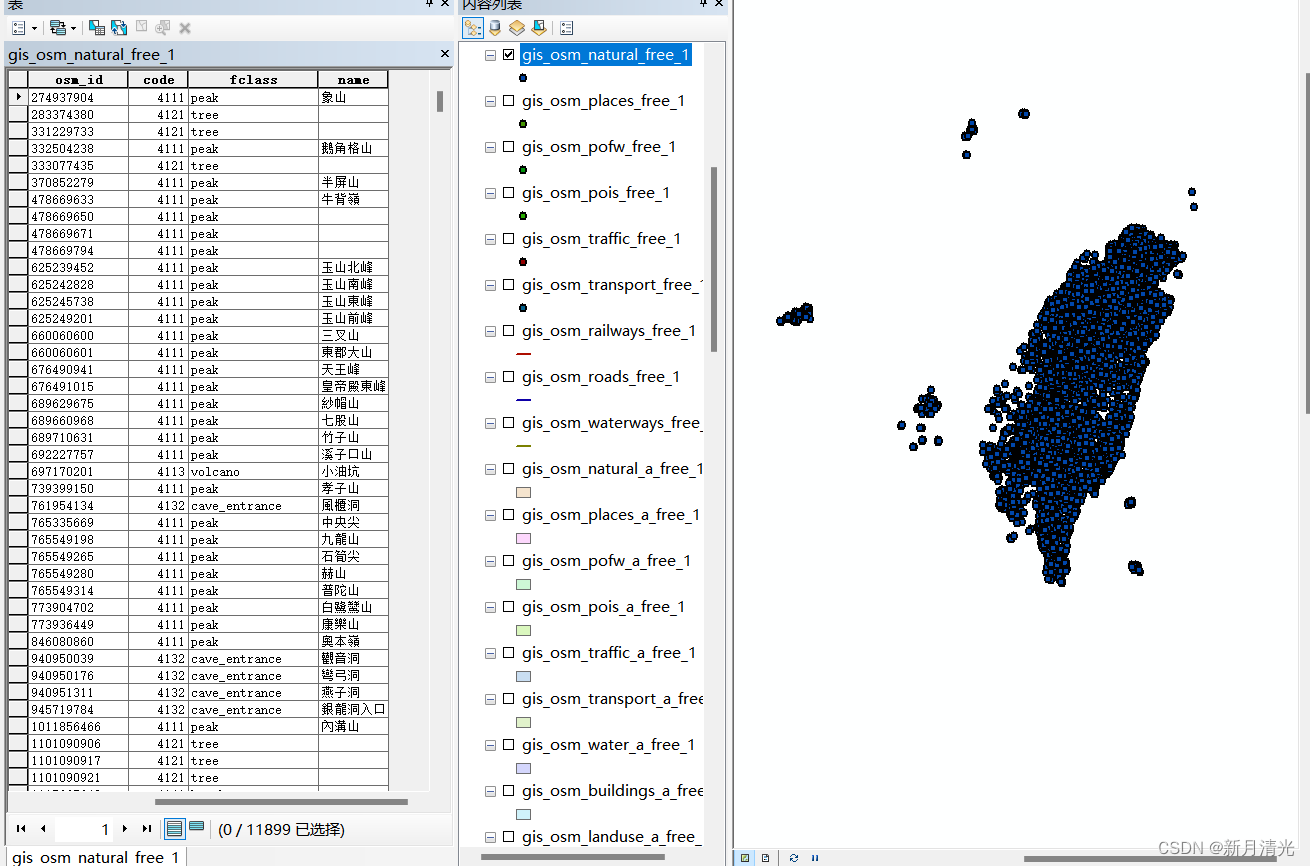
2022年台湾省矢量数据(点线面)及数字高程数据下载
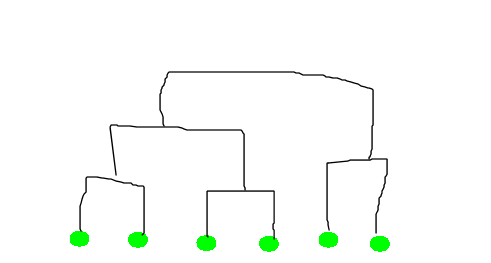
Cluster understanding
![[Original] Usage of @PrePersist and @PreUpdate in JPA](/img/a0/5aebdef4a12fe55b4782b69e39b817.png)
[Original] Usage of @PrePersist and @PreUpdate in JPA
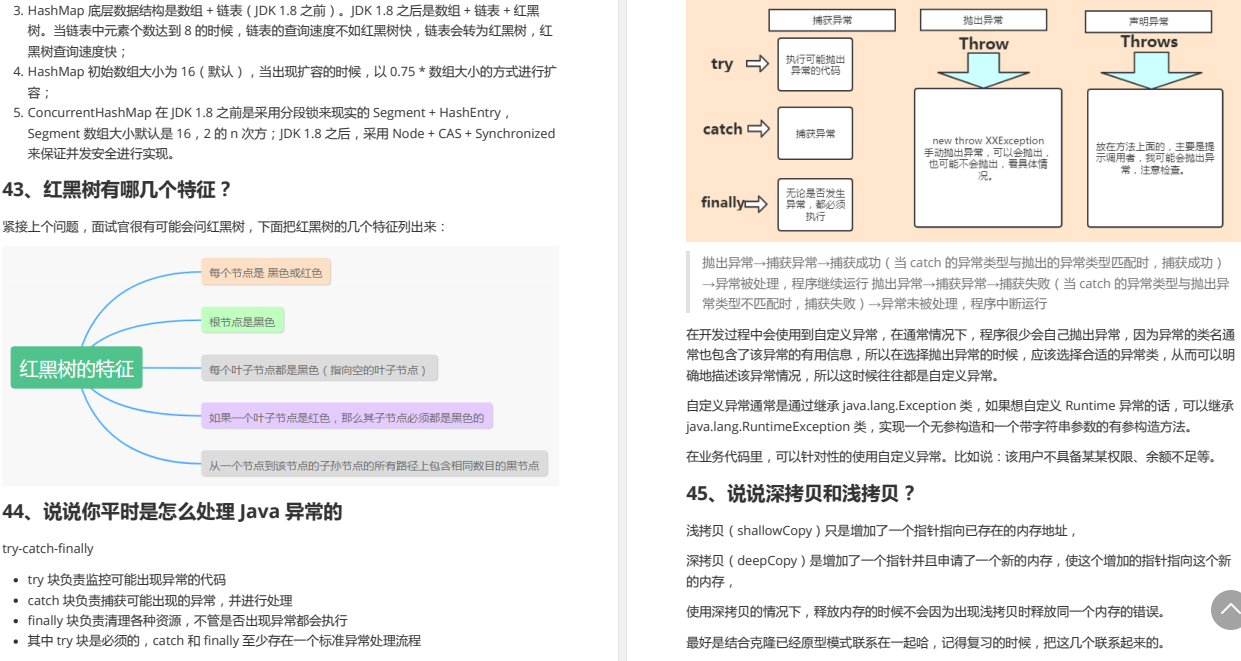
真香!肝完Alibaba这份面试通关宝典,我成功拿下今年第15个Offer
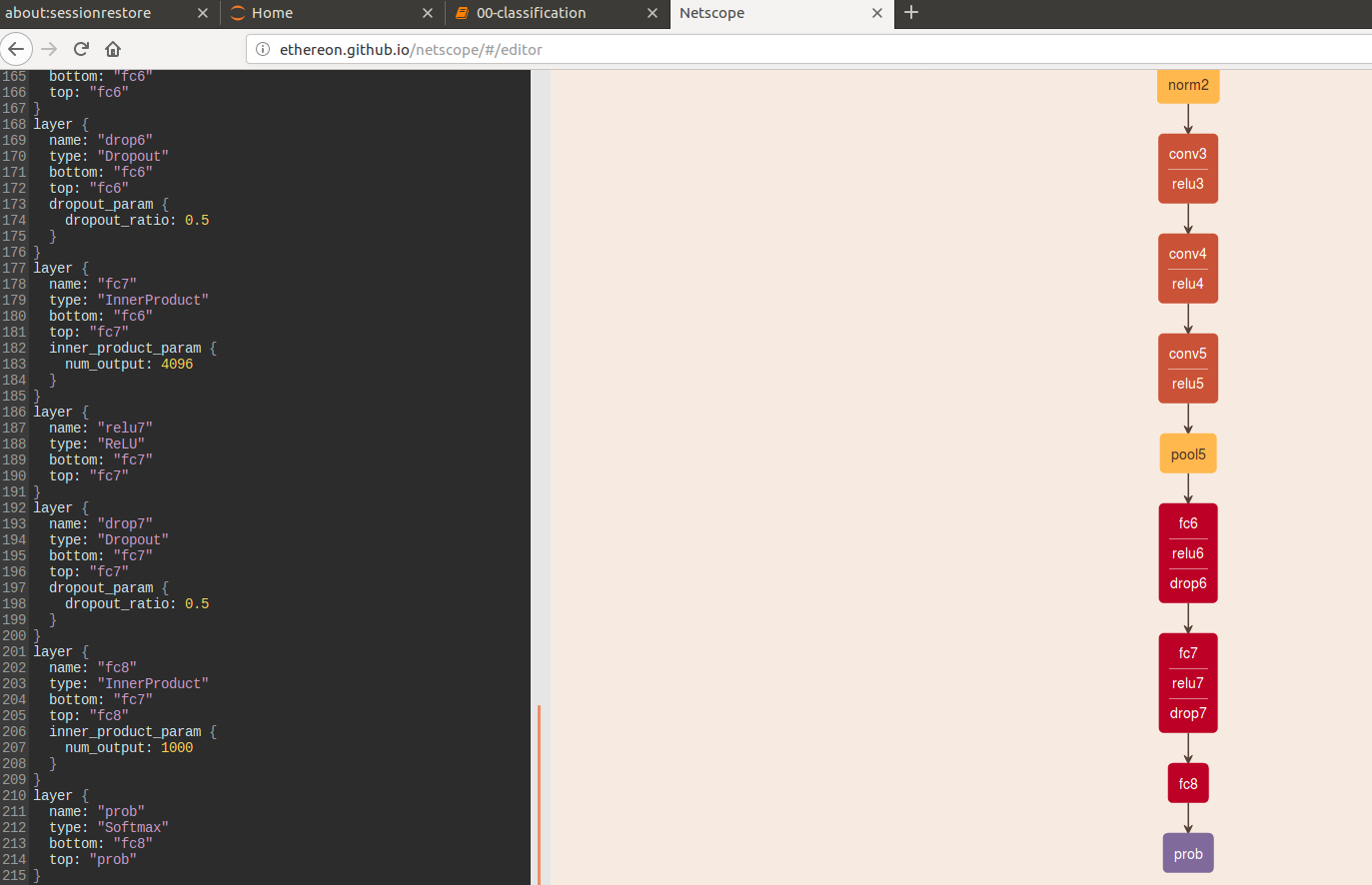
Netscope: Online visualization tool for neural network structures

支付宝小程序的接入
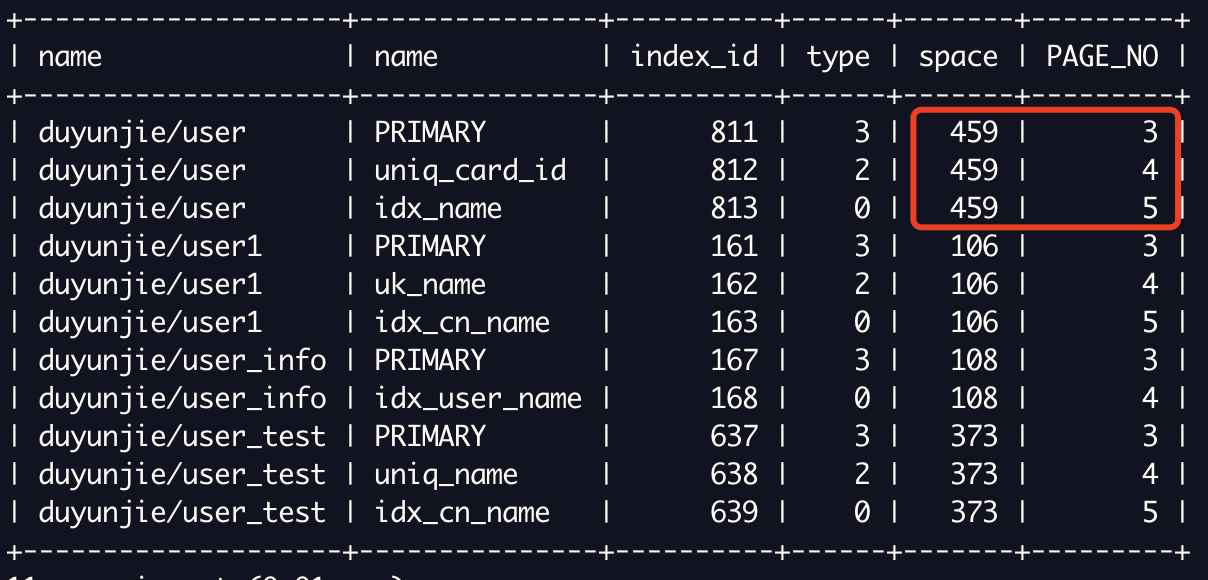
MySQL索引的B+树到底有多高?
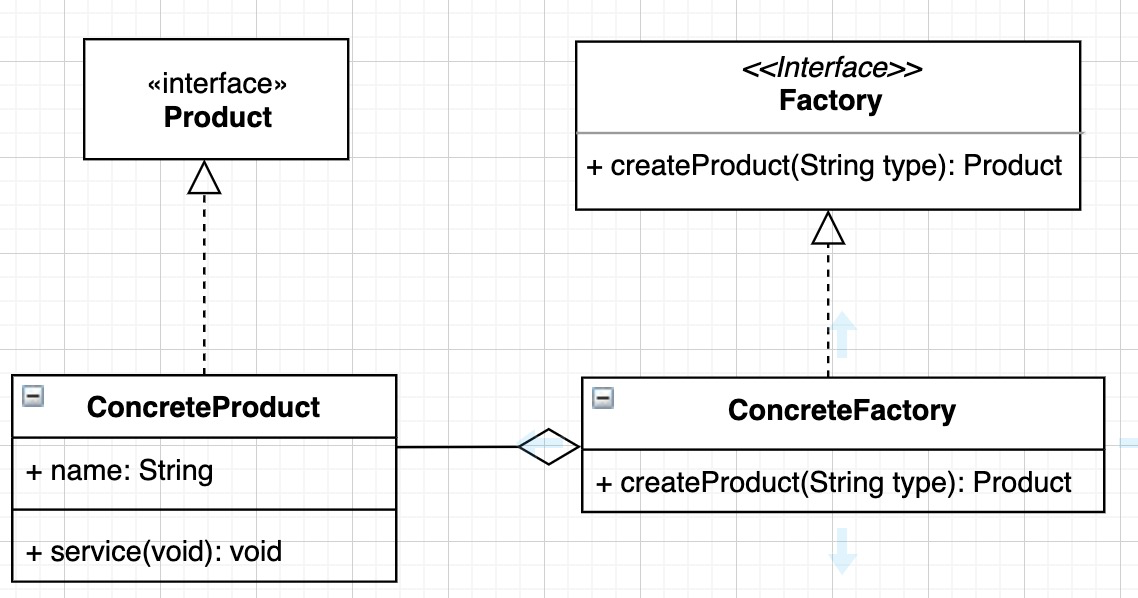
彻底理解工厂模式

Probably 95% of the people are still making PyTorch mistakes
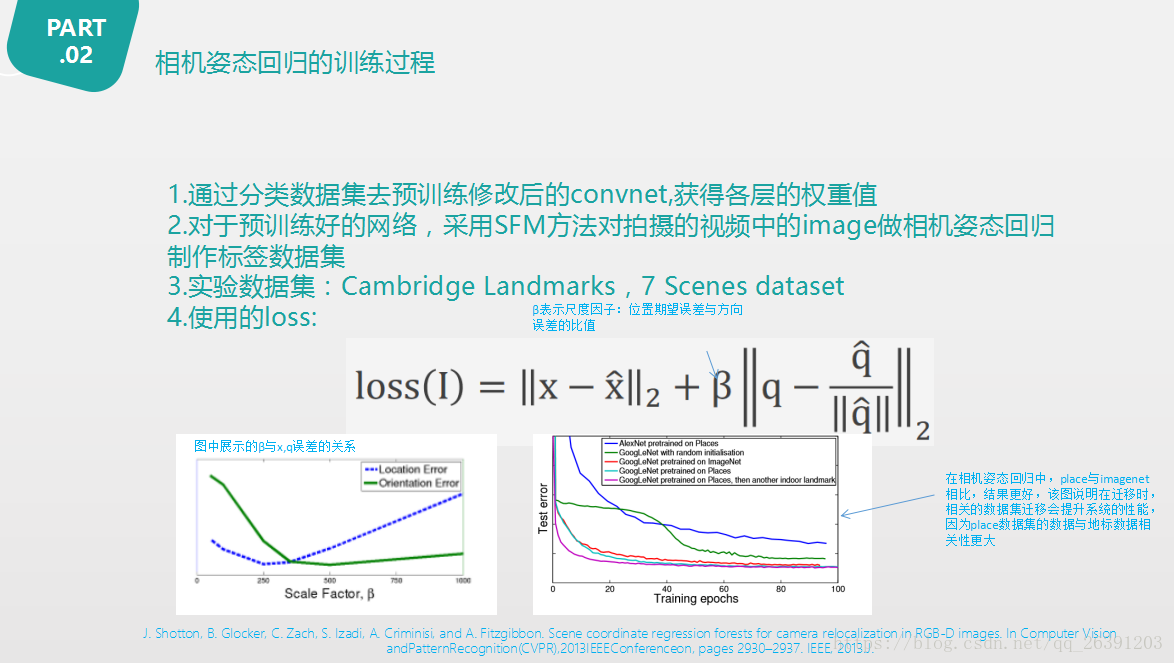
PoseNet: A Convolutional Network for Real-Time 6-DOF Camera Relocalization论文阅读
随机推荐
MNIST机器学习入门
数据存储:对dataframe类,使用to_csv()将中文数据写入csv文件
2022年台湾省矢量数据(点线面)及数字高程数据下载
实测办公场景下,国产远程控制软件的表现力如何?(技术解析)
Unix Environment Programming Chapter 14 14.4 I/O Multiplexing
1007 Maximum Subsequence Sum (25分)
electron 应用开发优秀实践
For versions corresponding to tensorflow and numpy, report FutureWarning: Passing (type, 1) or '1type' as a synonym of type is deprecate
CSDN的markdown编辑器语法完整大全
图片查看器viewer
Cpolar内网穿透的面板功能介绍
MySQL外键在数据库中的作用
在线编译matlab,亲测好用
使用pip成功安装某个库,但pycharm中找不到,此问题的解决方案
Solve 1. tensorflow runs using CPU but not GPU 2. GPU version number in tensorflow environment 3. Correspondence between tensorflow and cuda and cudnn versions 4. Check cuda and cudnn versions
类与对象 (下)
unix系统编程 第十五章 15.2管道
tensorflow实现线性方程的参数调整
torch.stack()的官方解释,详解以及例子
activemq 消息持久化